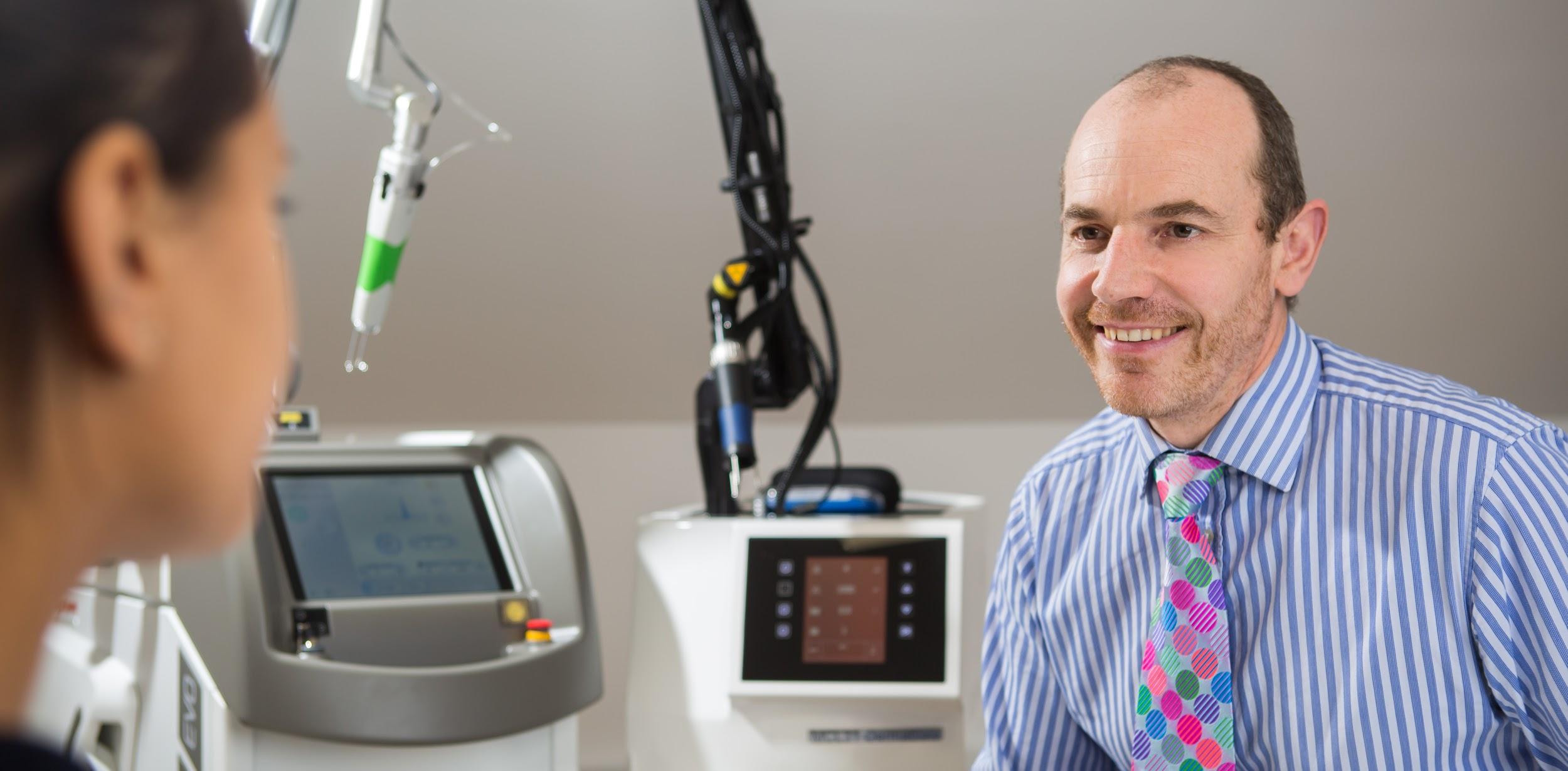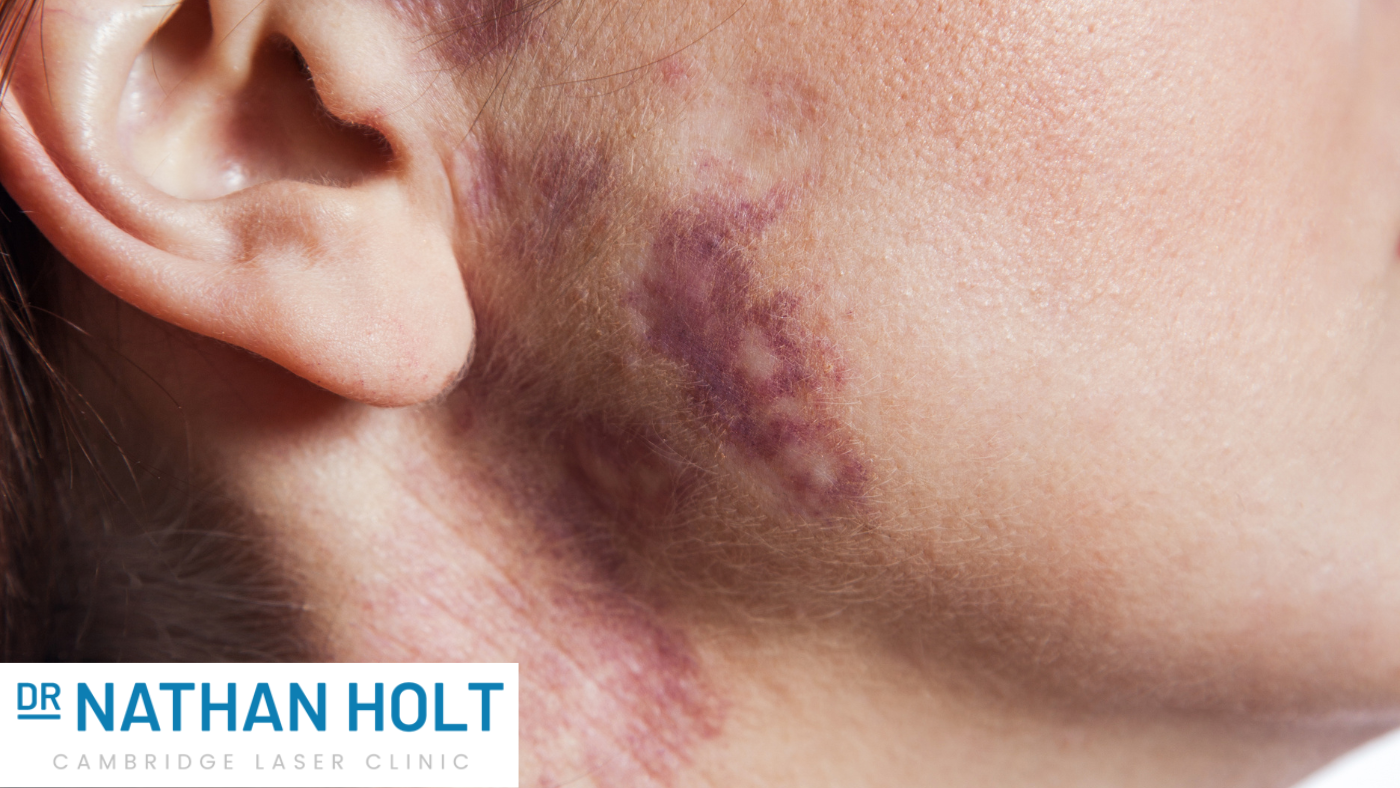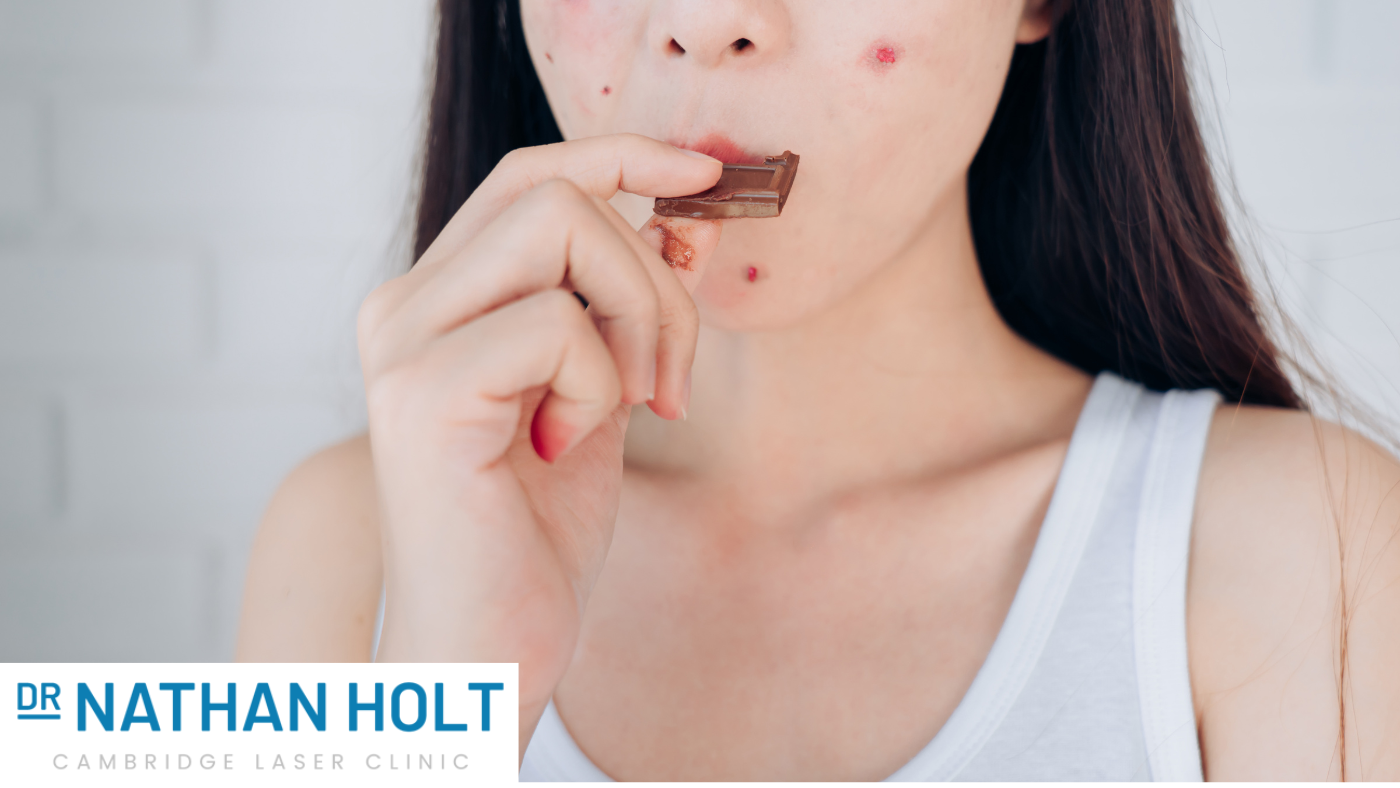Rosacea, a chronic skin condition characterised by facial redness, swelling, and visible blood vessels, can…

Laser Hair Removal and Eczema: Is It Safe?
Eczema is a skin condition that affects people around the globe. Some develop eczema as a child and eventually grow out of it, but many individuals experience eczema flare-ups throughout their life and into adulthood. There is no cure for eczema, but there are a number of medications available to manage the condition when a flare-up occurs, such as topical creams and steroids. Suffering from eczema often means being mindful of the irritants that your skin comes into contact with; you might find yourself having to use specific soaps and shower gels or only being able to use a certain washing detergent.
During an eczema flare-up, you are likely to experience inflamed, dry, rough and scaly patches of skin. These can occur anywhere on the body, though some areas are more commonly affected than others. Skin is more susceptible to an eczema flare-up if it’s been irritated in some way, which is why a lot of people worry that laser hair removal treatment is unsafe for those with eczema.
There is a common misconception that having eczema means not being able to safely have laser hair removal treatment. However, you can certainly undergo laser hair removal treatment as an eczema sufferer, but there are certain things to bear in mind.
Can You Have Laser Hair Removal Treatment With Eczema?
A lot of people assume that having eczema prevents you from being able to reap the rewards of laser hair removal. For most people who suffer from eczema, the condition is limited to certain areas of the body. This could be anywhere on the body, but elbows, knees, hands, faces and around the eyes are commonly affected areas. If you are having laser treatment in an area that doesn’t suffer from eczema, there is nothing to worry about.
It’s also a condition that comes and goes and is usually experienced in flare-ups that are sometimes worse than others. If the area you want to have treatment on is not affected by eczema, there is no reason why you cannot have laser hair removal. If the area is affected by eczema, treatment is still possible, but you will need to wait until there is no sign of a flare-up.
Before laser hair treatment can be carried out on an area that is affected by eczema, the skin must be completely healed. This also means potentially waiting until any medication has completely left your system and forgoing any topical creams beforehand, as these may alter the results.
Does Having Eczema Affect Laser Hair Removal Treatment?
Yes, having eczema does affect laser hair removal treatment somewhat, but it’s unlikely to stop results completely. If you are experiencing an eczema flare-up, your laser hair removal treatment will need to be paused until the skin has completely healed. This means that the course of treatment will be longer than initially anticipated. Continuing on during an eczema flare-up will not only hinder results, but it’s likely to be painful and cause lasting damage to the skin.
During a course of laser hair removal treatment, sessions will usually be between four and six weeks apart, depending on the area of the body being targeted. If you experience a flare-up during this time, you may need a longer gap between sessions. Plus, you may need to wait longer to see laser hair removal results which also allows for more regrowth. If the interval between sessions is extended to the point that there is a lot of regrowth, more laser hair removal sessions could be needed and the overall course of treatment could be longer.
The eczema medication you are taking could also affect laser hair removal treatment results, which is why it’s important to discuss this beforehand. Some creams prescribed for eczema are light-sensitive, so you won’t be able to undergo laser treatment whilst using them. Similarly, eczema creams that use steroids will also possibly need to be stopped and given time to leave the body, which can mean that treatment takes longer than first thought.
Though having eczema is unlikely to change laser hair removal treatment results entirely – it works just as well on those with eczema compared to those without – flare-ups could mean that the time it takes to complete your course of treatment is longer than for skin that is free of the condition.
Is Laser Hair Removal Better for Eczema Than Shaving?
There are a variety of ways to remove unwanted body hair; you can shave or wax, and there are lots of hair removal creams and ointments available. However, laser hair removal is continually listed as one of the best ways to get rid of unwanted hair. This is because laser hair removal provides a long-lasting and effective way to remove hair from various areas of the body, such as the face, underarms and bikini area. Though a number of sessions are needed, to begin with, laser hair removal provides a much more permanent solution and doesn’t need to be ‘kept on top of’ in the same way that shaving or waxing does.
For those with eczema, there is another major benefit that comes with choosing laser hair removal. Many things can contribute to an eczema flare-up; certain foods, the weather, beauty products, allergens, soaps and washing detergents are all common irritants. Shaving and waxing also fall into this category, as they can irritate the skin and cause an eczema flare-up. By opting for laser treatment and removing the need to shave or wax completely, hair removal treatment is one less eczema trigger to worry about.
Professional Laser Hair Removal Treatment
As you can see, it’s safe to have laser hair removal treatment for someone who suffers from eczema, as long as treatment is not carried out on the affected skin. If you are experiencing an eczema flare-up, you will need to wait until the skin is healed before laser hair removal treatment begins. To find out more about laser hair removal treatment and whether it’s an option with your current eczema, speak to a specialist.



